HOPA Members Write about the Latest Drug Updates
The Pharmacist's Application to Practice (PAP)
Use these member-authored Pharmacists' Applications to Practice (PAPs) to read about the role of oncology drugs in treatment plans. Get research summaries, including end points, and Clinical Pearls, as well as explore the role of the hematology/oncology pharmacists in the application of these drugs. Check the latest Drug Updates.

Tislelizumab-jsgr in the treatment of advanced or metastatic squamous cell carcinoma
(March 14, 2024) Approval for tislelizumab-jsgr for advanced or metastatic esophageal squamous cell carcinoma was based on RATIONALE-302, an open-label, randomized, active-controlled, multi-center, international, phase III clinical trial.

Nirogacestat (Ogsiveo) for treatment of desmoind tumors
(December 27, 2023) Nirogacestat is a first in class gamma secretase inhibitor that blocks activation of the Notch receptor. Desmoid tumors have been found to produce high amounts of the Notch protein, which promotes the growth of the tumor. Nirogacestat can specifically block the activity of gamma secretase, which is an enzyme that helps activate the Notch pathway.

Eflornithine for high-risk neuroblastoma
(December 13, 2023) Eflornithine (difluoromethylornithine, DFMO, Iwilfin) is a first-in-class ornithine decarboxylase inhibitor which inhibits polyamine synthesis and restores the LIN28/Let-7 metabolic pathway. This reduces the expression of MYCN and LIN28B in MYCN-amplified neuroblastoma.

Capivasertib for the treatment of metastic breast cancer
( November 16, 2023) Capivasertib (Truqap) is approved for use in combination with fulvestrant for HR-positive, HER2-negative locally advanced or metastatic breast cancer with PIK3CA/AKT1/PTEN alteration and previous progression on endocrine therapy in the metastatic setting or recurrence < 12 months of completing adjuvant therapy.1

Repotrectinib for ROS1-positive locally advanced or metastatic NSCLC
(November 15, 2023) Repotrectinib is approved for the treatment of ROS1-positive locally advanced or metastatic NSCLC for patients who have previously received ROS1 tyrosine kinase inhibitors (TKIs) or are TKI-naïve. Approval was based on data collected in the ongoing single arm, global multicenter, open-label phase 2 TRIDENT-1 trial.1
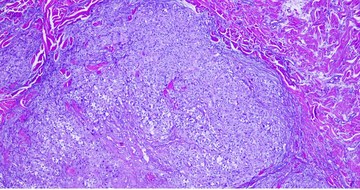
Hepzato Kit™ for uveal melanoma with unresectable hepatic metastasis
(August 14, 2023 ) Hepzato Kit™ (melphalan) for Injection/Hepatic Delivery System (HDS) is FDA approved as a liver-directed therapy for treatment of adult patients with uveal melanoma with unresectable hepatic metastasis affecting less than 50% of the liver and no extrahepatic disease, or extrahepatic disease limited to the bone, lymph nodes, subcutaneous tissues, or lung that is amenable to resection or radiation.

Momelotinib for the treatment of myelofibrosis
(September 15, 2023) Momelotinib works by inhibiting disease drivers such as JAK1 and JAK2, which contribute to the pathogenesis of myelofibrosis (MF). Unlike other JAK inhibitors, momelotinib also inhibits activin A receptor type 1 (ACVR1), which reduces liver hepcidin expression and increases iron availability for erythropoiesis.

Fruquintinib for refractory metastatic colorectal cancer
(November 8, 2023) The FDA approved fruquintinib for adult patients with metastatic colorectal cancer (mCRC) who received prior fluoropyrimidine-, oxaliplatin-, and irinotecan-based chemotherapy, an anti-VEGF therapy, and, if RAS wild-type and medically appropriate, an anti-EGFR therapy.

Nirogacestat (Ogsiveo) for treatment of desmoind tumors
(December 27, 2023) Nirogacestat is a first in class gamma secretase inhibitor that blocks activation of the Notch receptor. Desmoid tumors have been found to produce high amounts of the Notch protein, which promotes the growth of the tumor. Nirogacestat can specifically block the activity of gamma secretase, which is an enzyme that helps activate the Notch pathway.

Eflornithine for high-risk neuroblastoma
(December 13, 2023) Eflornithine (difluoromethylornithine, DFMO, Iwilfin) is a first-in-class ornithine decarboxylase inhibitor which inhibits polyamine synthesis and restores the LIN28/Let-7 metabolic pathway. This reduces the expression of MYCN and LIN28B in MYCN-amplified neuroblastoma.

Capivasertib for the treatment of metastic breast cancer
( November 16, 2023) Capivasertib (Truqap) is approved for use in combination with fulvestrant for HR-positive, HER2-negative locally advanced or metastatic breast cancer with PIK3CA/AKT1/PTEN alteration and previous progression on endocrine therapy in the metastatic setting or recurrence < 12 months of completing adjuvant therapy.1

Repotrectinib for ROS1-positive locally advanced or metastatic NSCLC
(November 15, 2023) Repotrectinib is approved for the treatment of ROS1-positive locally advanced or metastatic NSCLC for patients who have previously received ROS1 tyrosine kinase inhibitors (TKIs) or are TKI-naïve. Approval was based on data collected in the ongoing single arm, global multicenter, open-label phase 2 TRIDENT-1 trial.1

Hepzato Kit™ for uveal melanoma with unresectable hepatic metastasis
(August 14, 2023 ) Hepzato Kit™ (melphalan) for Injection/Hepatic Delivery System (HDS) is FDA approved as a liver-directed therapy for treatment of adult patients with uveal melanoma with unresectable hepatic metastasis affecting less than 50% of the liver and no extrahepatic disease, or extrahepatic disease limited to the bone, lymph nodes, subcutaneous tissues, or lung that is amenable to resection or radiation.

Momelotinib for the treatment of myelofibrosis
(September 15, 2023) Momelotinib works by inhibiting disease drivers such as JAK1 and JAK2, which contribute to the pathogenesis of myelofibrosis (MF). Unlike other JAK inhibitors, momelotinib also inhibits activin A receptor type 1 (ACVR1), which reduces liver hepcidin expression and increases iron availability for erythropoiesis.

Fruquintinib for refractory metastatic colorectal cancer
(November 8, 2023) The FDA approved fruquintinib for adult patients with metastatic colorectal cancer (mCRC) who received prior fluoropyrimidine-, oxaliplatin-, and irinotecan-based chemotherapy, an anti-VEGF therapy, and, if RAS wild-type and medically appropriate, an anti-EGFR therapy.

Nirogacestat (Ogsiveo) for treatment of desmoind tumors
(December 27, 2023) Nirogacestat is a first in class gamma secretase inhibitor that blocks activation of the Notch receptor. Desmoid tumors have been found to produce high amounts of the Notch protein, which promotes the growth of the tumor. Nirogacestat can specifically block the activity of gamma secretase, which is an enzyme that helps activate the Notch pathway.

Eflornithine for high-risk neuroblastoma
(December 13, 2023) Eflornithine (difluoromethylornithine, DFMO, Iwilfin) is a first-in-class ornithine decarboxylase inhibitor which inhibits polyamine synthesis and restores the LIN28/Let-7 metabolic pathway. This reduces the expression of MYCN and LIN28B in MYCN-amplified neuroblastoma.

Capivasertib for the treatment of metastic breast cancer
( November 16, 2023) Capivasertib (Truqap) is approved for use in combination with fulvestrant for HR-positive, HER2-negative locally advanced or metastatic breast cancer with PIK3CA/AKT1/PTEN alteration and previous progression on endocrine therapy in the metastatic setting or recurrence < 12 months of completing adjuvant therapy.1

Repotrectinib for ROS1-positive locally advanced or metastatic NSCLC
(November 15, 2023) Repotrectinib is approved for the treatment of ROS1-positive locally advanced or metastatic NSCLC for patients who have previously received ROS1 tyrosine kinase inhibitors (TKIs) or are TKI-naïve. Approval was based on data collected in the ongoing single arm, global multicenter, open-label phase 2 TRIDENT-1 trial.1

Hepzato Kit™ for uveal melanoma with unresectable hepatic metastasis
(August 14, 2023 ) Hepzato Kit™ (melphalan) for Injection/Hepatic Delivery System (HDS) is FDA approved as a liver-directed therapy for treatment of adult patients with uveal melanoma with unresectable hepatic metastasis affecting less than 50% of the liver and no extrahepatic disease, or extrahepatic disease limited to the bone, lymph nodes, subcutaneous tissues, or lung that is amenable to resection or radiation.

Momelotinib for the treatment of myelofibrosis
(September 15, 2023) Momelotinib works by inhibiting disease drivers such as JAK1 and JAK2, which contribute to the pathogenesis of myelofibrosis (MF). Unlike other JAK inhibitors, momelotinib also inhibits activin A receptor type 1 (ACVR1), which reduces liver hepcidin expression and increases iron availability for erythropoiesis.

Fruquintinib for refractory metastatic colorectal cancer
(November 8, 2023) The FDA approved fruquintinib for adult patients with metastatic colorectal cancer (mCRC) who received prior fluoropyrimidine-, oxaliplatin-, and irinotecan-based chemotherapy, an anti-VEGF therapy, and, if RAS wild-type and medically appropriate, an anti-EGFR therapy.
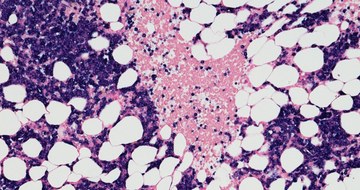
Elranatamab-bcmm for multiple myeloma
(August 14, 2023) The FDA granted accelerated approval to elranatamab-bcmm (Elrexfio, Pfizer, Inc.), a bispecific B-cell maturation antigen (BCMA)-directed CD3 T-cell engager. Click to read a Pharmacist's Application to Practice.

Fruquintinib in refractory metastatic colorectal cancer
(August 11, 2023) The FDA approved fruquintinib for adult patients with metastatic colorectal cancer (mCRC) who received prior fluoropyrimidine-, oxaliplatin-, and irinotecan-based chemotherapy, an anti-VEGF therapy, and, if RAS wild-type and medically appropriate, an anti-EGFR therapy.

Talquetamab-tgvs for the treatment of adult patients with relapsed or refractory multiple myeloma
(August 8, 2023) FDA approves Talvey (talquetamab-tgvs) for the treatment of adult patients with relapsed or refractory multiple myeloma who have received at least four prior lines of therapy, including a proteasome inhibitor, an immunomodulatory agent and an anti-CD38 monoclonal antibody.
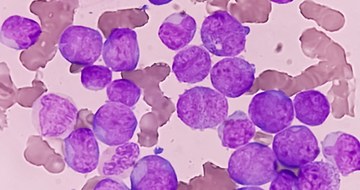
Quizartinib for newly diagnosed acute myeloid leukemia
(July 20, 2023) The FDA approved quizartinib (Vanflyta, Daiichi Sankyo, Inc.) with standard cytarabine and anthracycline induction and cytarabine consolidation, and as maintenance monotherapy following consolidation chemotherapy. Read our Pharmacist's Application to Practice.
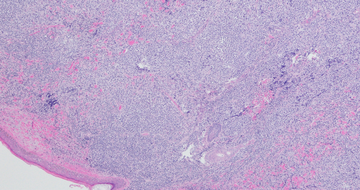
Glofitamab-gxbm for selected relapsed or refractory large B-cell lymphomas
(June 15, 2023) The FDA granted accelerated approval to glofitamab-gxbm (Columvi, Genentech, Inc.) for relapsed or refractory diffuse large B-cell lymphoma, not otherwise specified (DLBCL, NOS) or large B-cell lymphoma (LBCL) arising from follicular lymphoma. Read the Pharmacist's Application to Practice.

Epcoritamab-bysp) for relapsed or refractory diffuse large B-cell Lymphoma
(May 19, 2023) FDA grants accelerated approval to epcoritamab-bysp for relapsed or refractory diffuse large B-cell lymphoma and high-grade B-cell lymphoma.

Retifanlimab-dlwr for MCC
3/22/23 - FDA grants accelerated approval to retifanlimab-dlwr for metastatic or recurrent locally advanced Merkel cell carcinoma (MCC). Click to read a Pharmacist's Application to Practice.

Elacestrant for (HR) Positive, (HER2) Negative metastatic breast cancer
1/27/23 - Elacestrant for Hormone Receptor (HR) Positive, Human Epidermal Growth Factor Receptor 2 (HER2) negative metastatic breast cancer. Click to read a Pharmacist's Application to Practice.

Pirtobrutinib for relapsed or refractory MCL
1/27/2023 - Learn about the potential role for pirtobrutinib in the treatment of relapsed or refractory mantle cell lymphoma (MCL) after at least two lines of systemic therapy, including a BTK inhibitor. Click to read more.

Mosunetuzumab-axgb for relapsed or refractory follicular lymphoma
12/22/22 - FDA grants accelerated approval to mosunetuzumab-axgb for relapsed or refractory follicular lymphoma. Please click to read our Pharmacist's Application to Practice.

Adstiladrin (nadofaragene firadenovec-vncg) for high-risk, non-muscle-invasive bladder cancer
12/16/22 - FDA Approves First Gene Therapy for the Treatment of High-Risk, Non-Muscle-Invasive Bladder Cancer. Read our Pharmacist's Application to Practice.
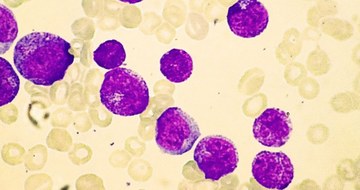
Olutasidenib for relapsed or refractory AML
12/1/22 - FDA approves olutasidenib (Rezlidhia) capsules for adult patients with relapsed or refractory acute myeloid leukemia (AML) with a susceptible IDH1 mutation as detected by an FDA-approved test. Click to read our Pharmacist's Application to Practice.

Adagrasib for KRAS G12C-mutated NSCLC
12/12/22 - FDA grants accelerated approval to adagrasib for adult patients with KRAS G12C¬-mutated locally advanced or metastatic non-small cell lung cancer (NSCLC), as determined by an FDA-approved test, who have received at least one prior systemic therapy.

Mirvetuximab soravtansine-gynx for FRα positive, platinum-resistant epithelial ovarian, fallopian tube, or peritoneal cancer
11/14/2022 - FDA grants accelerated approval to mirvetuximab soravtansine-gynx for FRα positive, platinum-resistant epithelial ovarian, fallopian tube, or peritoneal cancer. Please click to read our Pharmacist's Application to Practice.

Tremelimumab for uHCC) and mNSCLC
11/10/2022 - Read our Pharmacist's Application to Practice about tremelimumab for unresectable hepatocellular carcinoma (HCC) and metastatic non-small cell lung cancer (NSCLC). Please click to read.

Teclistamab-cqyv for relapsed or refractory multiple myeloma
10/25/22 - FDA approves teclistamab-cqyv for adult patients with relapsed or refractory multiple myeloma who have received at least four prior lines of therapy, including a proteasome inhibitor, an immunomodulatory agent, and an anti-CD38 monoclonal antibody. Read our Pharmacist's Application to Practice.

Futibatinib for cholangiocarcinoma
9/30/22 - FDA grants accelerated approval to futibatinib (Lytgobi, Taiho Oncology, Inc.) for adult patients with previously treated, unresectable, locally advanced or metastatic intrahepatic cholangiocarcinoma harboring fibroblast growth factor receptor 2 (FGFR2) gene fusions or other rearrangements. Click to read our PAP.